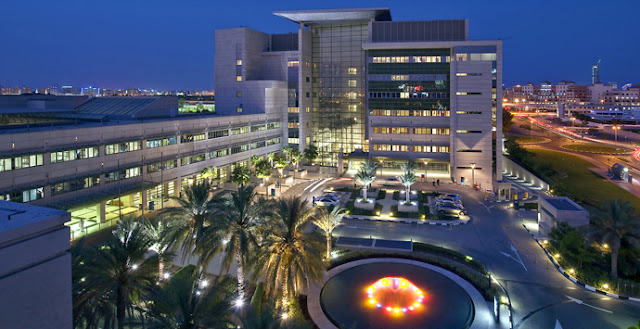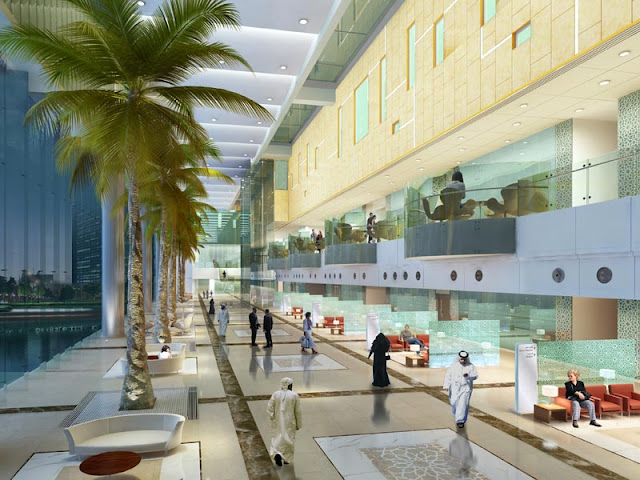This is a multi-part story that launched yesterday.
My employer-sponsored-health-plan provides me and my family with an annual physical with our primary care physician. This normally involves a 40 to 60-minute appointment where a nurse measures my height and weight, checks my vision, draws some blood and has me pee in a cup before my doctor gives me a physical examination. Thanks to Obamacare this little interaction is annual and free, meaning no co-pay, no-deductible or other disincentive to see someone. It also provides the opportunity to discuss with my primary care provider anything that concerns me but didn’t warrant me shelling out money to book a regular appointment with him or her. Finally, it also allows me to unlock and renew my prescriptions for the medications I am supposed to be on for another 12 months - even though I have been on the exact same stuff for more years than I can remember.
Sure, my free annual physical is valuable but just how valuable is it someone like me? Am I at early risk of coronary heart disease, to a stroke, cancer or some ailment that will one day take me surprise and whisk me off to an early death, or worse, a lingering and expensive demise that medically bankrupts my family when my employer sponsored health insurance runs out? Welcome to US healthcare!
Would my 40 minute interaction with my doctor once a year actually discover such a risk?
Highly unlikely I suspect.
Would my health insurance pay for me to undergo a battery of tests to find out?
Also highly unlikely!
The current US Payer-Provider preventative care system is nowhere near as good as politicians would have us believe, and nowhere near as good as physicians would advise or recommend.
I guess my concerns are shared by many people over 40, and that may be why many of us receive direct mail flyers advertising advanced cholesterol or cancer screening – the “Plus Version” of an annual physical if you like. One where you are made to run on a treadmill while connected to an ECG and put through a battery of other tests not covered by your “free annual physical". “Prevention is better and cheaper than cure” as the saying goes and I’m sure all of us would agree.
So my wife and I looked into the costs of a comprehensive health check at home and abroad, including travel. We also looked into the costs of a dental checkup cleaning and treatments since we didn’t elect dental insurance this year. We all look after our teeth and the costs of dental insurance just didn’t make economic sense. What we found surprised us.
We could fly all the way to Bangkok, Thailand, stay in a luxury 5 star hotel, enjoy a highly comprehensive health check - including in my case a full workup, ultrasounds, etc. get our teeth cleaned and fixed (and take a short vacation) all for significantly less than what it would cost us in the US..... And do it all at top-notch hospitals and dental clinics.
Our Medical Health Check
We selected Bumrungrad International Hospital in the heart of Bangkok for our health check and City Dental Clinic just down the road from the hospital for our teeth cleaning and maintenance. Not only is Bumrungrad reportedly one of the top ten JCI (Joint Commission) accredited hospitals in the world, it has one of the best hospital workflows I have ever seen - (and I work in US healthcare!) They have the health check workflow down to an art. You move seamlessly between one medical station and the next, taking your file with you as you go. Finish one test and a nurse is there to guide you to the next one and so it goes on all day. It truly was a pleasure to witness and observe. Why western hospitals can't seem to have any rational form of workflow and insist on keeping you waiting for long periods for an appointment THEY issued you in the first place is an anathema to me.
From the pleasant greeting upon entry to the five-star service throughout including lunch catered by the nearby JW Marriott, everyone spoke excellent English as well as half a dozen other languages to cater to guests from Europe, Australasia, the Americas, the Middle East and Asia, including a number of local Thai and Burmese.
No "nickel and diming" either and no unexpected costs. You select exactly what you want in advance from a menu of different health check options when you book your appointment, so you know what you need to pay when you show up on the day. If you need to add extras after your health check, like a consult with a specialist, the hospital will do its best to schedule you in that evening or the following day - even over the weekend. And the costs of an additional specialist consult? About $22 in my wife’s case.
What makes it all the more convenient, is that you can charge it to your US healthcare savings debit card and pay for your medical treatments with pre-tax US earnings. If you have an international health plan you can usually charge the lot to your insurer who is happy to pay non-US healthcare rates for a valuable service.
Need a procedure like a biopsy? $100 to $200 often on the same day and certainly while you are in town. Now if only US healthcare could be as efficient! For that reason, it’s probably best to schedule your health check on day 2 or day 3 of a week long stay so you have time for any additional follow up before you hit the beach or need to head home.
One thing to beware of is that some doctors will only schedule office hours in Bumrungrad on a couple of days per week so if you want to see a certain named specialist, then its best to plan a little extra time. Of course you could always opt for someone else in the same specialty area as we did and still get excellent advice. Many doctors we found will schedule office hours from 5pm onwards or weekends only, which was a little unusual from our experience in the US. In actuality, this worked out well for us as we were busy during normal business hours anyway with tourist stuff.
Bear in mind that hospital pharmacies are quite a bit more expensive than pharmacies outside. That's generally the case everywhere, but you don't have to purchase your meds from the Bumrungrad hospital pharmacy if you don't want to. You can just ask your doctor to write them down and have the billing clerk remove them from your bill when its time to pay for any extras if they were added. No need for official prescriptions in Thailand either for non-opioids.
Bear in mind that hospital pharmacies are quite a bit more expensive than pharmacies outside. That's generally the case everywhere, but you don't have to purchase your meds from the Bumrungrad hospital pharmacy if you don't want to. You can just ask your doctor to write them down and have the billing clerk remove them from your bill when its time to pay for any extras if they were added. No need for official prescriptions in Thailand either for non-opioids.
Pharmacies abound on every street and every mall in Bangkok so you have your choice of pharmacies. If you are going to other major towns, pharmaceutical drugs are even cheaper. I stocked up one year in Chiang Mai and it was about half the price of the pharmacies I usually go to in Bangkok. Just be sure to check the expiration date of drugs if you are buying a year's supply. Also, especially if you are on some less common drugs leave time to pick these up back in Bangkok before flying home just in case you can't get them in smaller town's and cities.
Pharmacies are licensed in Thailand and I have never seen or heard of issues with tainted pharmaceutical drugs in the country. I have found drugs to be top quality, manufactured in Europe or America from reputable well known companies. Compare that to the no-name generic prescription you usually pick up from your US pharmacist.
Most Pharmacists speak excellent English and are very well trained and qualified. Don't have what you are looking for? The Pharmacist will be able to recommend a different drug and dosage and discuss side effects or other concerns with you in perfect English. That being said, they are not MDs so if in doubt, find another pharmacy with exactly what your doctor prescribed for you.
Our Vision Check
So while we were in Bumrungrad for a follow-up appointment, we thought why not get our eyes checked. I had managed to sit on my reading glasses before flying to Bangkok and while they still were functional they would never quite be the same again. So off we went to the floor of the hospital that deals with vision and booked an appointment for a prescription check to have our eyes tested.
Surprisingly they were able to see us within 10 minutes, so we delayed dinner plans and had a full vision check. My wife's prescription hadn't changed, but mine had slightly so I concluded that it was a good excuse for a new pair of reading glasses since I spend so much time in front of a computer screen. It took me longer to decide on the frames than the extensive test and selection of lens features from a long list available to me. I ended up selecting a very nice pair of usually very expensive name brand frames, paired with lenses with all the bells and whistles for about 70% of what I would have paid in the US after all the sales incentives, gimmicks and discounts were applied. What's more they would be ready the next day I was told to pick up or they could courier them for free to my hotel. I elected to pick them up in case any adjustments were needed. Now that I am home, I am using these computer reading glasses to write this article. In short my new glasses are perfect and far better than what I would have been able to purchase in the US for what I paid.
Our Dental Checkup
Our dental checkups were equally as pleasant at the City Dental Clinic across the street from the hospital. A young but very well qualified dentist checked my teeth and then sonically cleaned them all for about $20. My wife needed a couple of fillings for a chipped tooth and some depleted enamel. Her clean and procedure came to a mere $195 – way less than most people's dental insurance co-pay for a single filling let alone 3, and not including the the bi-weekly or monthly premiums most people waste on dental insurance.
[Since writing this article several years have elapsed and City Dental Clinic lost its building and has closed. On my last visit to Thailand I found a great but slightly more upmarket alternative in Truth Dental Clinic not far from Bumrungrad Hospital. The prices were slightly higher but scheduling an appointment in this larger better equipped dental clinic was a lot easier. Simply 'Line' or 'WhatsApp' their reception at +66 86-393-6231 before you leave home for an appointment no matter what time zone you are in.] Need 4 backto-back and simultaneous appointments for the family - they will find a time slot for you!
Our Vision Check
So while we were in Bumrungrad for a follow-up appointment, we thought why not get our eyes checked. I had managed to sit on my reading glasses before flying to Bangkok and while they still were functional they would never quite be the same again. So off we went to the floor of the hospital that deals with vision and booked an appointment for a prescription check to have our eyes tested.
Surprisingly they were able to see us within 10 minutes, so we delayed dinner plans and had a full vision check. My wife's prescription hadn't changed, but mine had slightly so I concluded that it was a good excuse for a new pair of reading glasses since I spend so much time in front of a computer screen. It took me longer to decide on the frames than the extensive test and selection of lens features from a long list available to me. I ended up selecting a very nice pair of usually very expensive name brand frames, paired with lenses with all the bells and whistles for about 70% of what I would have paid in the US after all the sales incentives, gimmicks and discounts were applied. What's more they would be ready the next day I was told to pick up or they could courier them for free to my hotel. I elected to pick them up in case any adjustments were needed. Now that I am home, I am using these computer reading glasses to write this article. In short my new glasses are perfect and far better than what I would have been able to purchase in the US for what I paid.
Our Dental Checkup
Our dental checkups were equally as pleasant at the City Dental Clinic across the street from the hospital. A young but very well qualified dentist checked my teeth and then sonically cleaned them all for about $20. My wife needed a couple of fillings for a chipped tooth and some depleted enamel. Her clean and procedure came to a mere $195 – way less than most people's dental insurance co-pay for a single filling let alone 3, and not including the the bi-weekly or monthly premiums most people waste on dental insurance.
[Since writing this article several years have elapsed and City Dental Clinic lost its building and has closed. On my last visit to Thailand I found a great but slightly more upmarket alternative in Truth Dental Clinic not far from Bumrungrad Hospital. The prices were slightly higher but scheduling an appointment in this larger better equipped dental clinic was a lot easier. Simply 'Line' or 'WhatsApp' their reception at +66 86-393-6231 before you leave home for an appointment no matter what time zone you are in.] Need 4 backto-back and simultaneous appointments for the family - they will find a time slot for you!
To Summarize
Why would anyone NOT take a trip to Thailand or other parts of the world for elective procedures and proactive health checks? Beats me - that’s all I can say! In fact, we are already planning our checkups and dental cleanings for next year.
Concerns about quality medical and dental staff? Bumrungrad International Hospital achieved Joint Commission status years ago and continues to be one of the top hospitals in the world. It serves over 400,000 medical tourists annually who by all accounts save between 50% and 75% on medical expenses they would have incurred for similar services in the US. The hospital's repeat international clientele is probably testament to its reputation and the quality of service patients receive.
Everyone we met was top notch – as good as you would find at home – just with lower hospital billing and insurance overheads, and significantly lower malpractice premiums to pay, thanks to the absence of both ambulance-chasing lawyers in Thailand and a US legal system written by lawyers to encourage the use of ....... lawyers for every little disagreement.
Why the US is falling so far behind the developing world should be obvious to all of us who work in the industry, but no one seems interested in fixing a broken system, removing overheads and getting healthcare costs down. With so many vested interests and different parties all wanting to keep their cut, that may never happen in the US. And so, medical tourism is likely to continue to expand as consumers vote with their feet.
Continue on to the final chapter of this story
Why would anyone NOT take a trip to Thailand or other parts of the world for elective procedures and proactive health checks? Beats me - that’s all I can say! In fact, we are already planning our checkups and dental cleanings for next year.
Concerns about quality medical and dental staff? Bumrungrad International Hospital achieved Joint Commission status years ago and continues to be one of the top hospitals in the world. It serves over 400,000 medical tourists annually who by all accounts save between 50% and 75% on medical expenses they would have incurred for similar services in the US. The hospital's repeat international clientele is probably testament to its reputation and the quality of service patients receive.
Everyone we met was top notch – as good as you would find at home – just with lower hospital billing and insurance overheads, and significantly lower malpractice premiums to pay, thanks to the absence of both ambulance-chasing lawyers in Thailand and a US legal system written by lawyers to encourage the use of ....... lawyers for every little disagreement.
Why the US is falling so far behind the developing world should be obvious to all of us who work in the industry, but no one seems interested in fixing a broken system, removing overheads and getting healthcare costs down. With so many vested interests and different parties all wanting to keep their cut, that may never happen in the US. And so, medical tourism is likely to continue to expand as consumers vote with their feet.
Continue on to the final chapter of this story












































